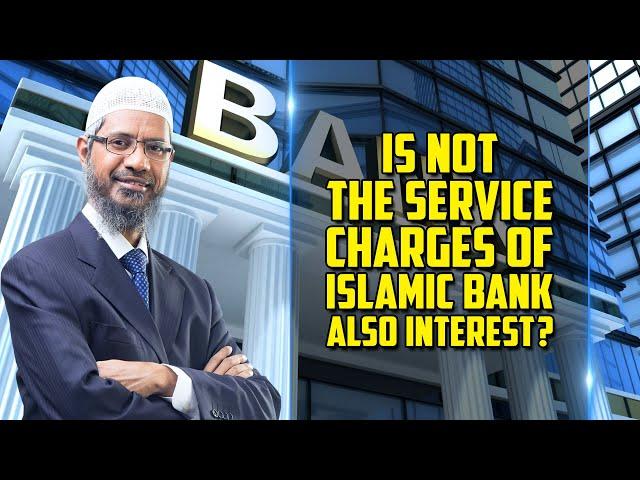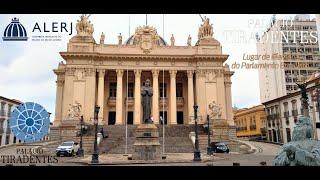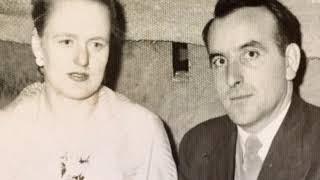
Is not the Service Charges of Islamic Bank also Interest? — Dr Zakir Naik
Комментарии:

We are in the era where it's really hard to not commit what is prohibited, because even though you're truthful, the system around you are forcing you to commit it. Like ZN said it's really hard to find any islamic bank that is 100% islamic.
There are other option, if you don't have money, then don't buy anything and taking any loans. It's better to save enough money to purchase it later.
But let's be real, something in this world, you cannot buy it in cash or directly from a seller. You're required to make a loan from bank (bank will pay the seller, and you need to pay the bank). It just so hard to run from it

people need banks and banks need some type of income. Without banks most people cant buy a car or a house and are homeless. Nor is there any way to safely transfer large amounts of money or keep your money safe. This is the only thing in islam that i think islam got wrong. No other option
Ответить
So when a Muslim country take loan on interest to build a road or bridge and they pay the money back with interest it’s allowed cuz all Muslim countries take loan on interest
Ответить
If there was a way to spin usury into buy and sell transaction why our prophet or other prophet or all our great ulama didn't come up with that scheme.. are we think that we are smarter than them all
Ответить
Musyarakah.. are you really think that bank make us as a partner? 😂😂😂
Ответить
As a Postgraduate student of Islamic Finance, I can say that the answer was somewhat confusing because Islamic banks don't provide loan and only provide lease facilities which is why I think the answer is insufficient. This video also did not answer the question asked in the title and to answer that I will simply reply the service charge to be similar as packaging fee charged by the food vendor on a food delivery app. Hope that answers the question.
Ответить
Plz it does not answer question , charges are interest or not
Ответить
Not at all. That is service charge.
1440 years ago, there were no bank
in Saudi. No Bank notes. No currency.
If they do not take service charge, who
will pay the staffs' salary, Electricity bill,
building rent, Security charges and Insurance etc...???🤣🤣🤣

I agree with brother ZN. No Islamic banking is completely Islamic means interest free. Remember a rule of thumb regarding banks that they don’t have any source of income other than the interest on the loans that are given out to consumers. So interest is the blood of banks, they can’t survive without it.
Ответить
How the true islamic banks survive without interest.....religions r full of stupid rules and regulations
Ответить
It is understood that Riba is prohibited unarguably, but does it mean Interest rate and the Riba same ? it is the question to answer, Further, need to clarify what is intensive meaning of Riba not as just defining interest. The interest element has the controlling power and make money market equilibrium whereas if such equalizing Interest rate to Riba bring entire world into Haram concept. Almihgty clearly stated that he permitted Business and prohibited Riba. Therefore it is very important to identify what is Riba not as defined Interest. According to my knowledge interest rate is not Riba.
Ответить
What banks should we go to?
Ответить
“God made commerce lawful and usury unlawful”
"جعل الله التجارة تحلّل والربا حرمًا"

❤️❤️❤️❤️
Ответить
Usury is forbidden 🚫
Ответить
I dont think that there are any 100% halal banks at all. All the so called islamic banks of UAE and KSA belong to the royal familys' which in turn keep their money in Swiss banks or invest into the western economies which function by rebah. Dr. Naik knows this pretty well. And its easy to do dawah when somebody is giving you money for living. Saudi King gave Dr. Naik $200k, how come Dr. Naik could accept it while he knows that this money is coming from King's pocket which he hasnt earned in halal way.
Ответить
What about the fee in the US banks take; We have no other option.
Ответить
Alhamdulillah👑 🌹
🌺🌺🌺🌺🌺🌺🌺

MasAllah
Ответить
Sir i have a question
Those who just not only physically disabled even mentally disabled who dont have any sense about any good/bad and even new born babies who dies at 1/10 months or 1/2 days after born
Will they go jannah?
If they get jannah then i m curious

It would be good if Dr Zakir could do a video saying what we need to check.
Ответить
Yes its riba or shall i say "backdoor riba"
Ответить
Boycott French products
Ответить
Ramadan is again approaching in our lives who is waiting heart soothing Arabic Nasheeds listen
Ответить
Bank job is haram or halal tell me?
Ответить
DON'T FORGET TO RECITE DUA AFTER EATING YOUR FOOD
Sahl bin Mu`adh bin Anas narrated from his father that:
The Messenger of Allah (ﷺ) said: “Whoever eats food and then says this Dua his past sins shall be forgiven.”
الْحَمْدُ للَّهِ الَّذِي أَطْعَمَنِي هَذَا، وَرَزَقَنِيهِ، مِنْ غَيْرِ حَوْلٍ مِنِّي وَلَا قُوَّةٍ
Alhamdu lillaahil-lathee 'at'amanee haathaa, wa razaqaneehi, min ghayri hawlin minnee wa laa quwwatin.
(At Tirmizi, 3458)
Meaning:
Praise is to Allah Who has given me this food and sustained me with it though I was unable to do it and powerless.
Take Screen shot of this so that you don't forget and share to others to earn reward. Jazakallah

The Quran contains many Prophecies that have been fulfilled,
The first two prophecies are noteworthy: unlike any other world scripture, the Quran prophesizes its own preservation under divine care, and we will demonstrate how it actually occurred.
The Protection of the Quran from Corruption
The Quran makes a claim no other religious text makes, that God Himself will keep its text safe from alteration. God says:
"Behold, it is We Ourselves who have gradually revealed this reminder, and, behold, it is We who shall truly guard it [from all corruption]." (Quran 15:9)
The Ease of Memorizing the Quran
God has made the Quran easy to memorize:
"And in truth We have made the Quran easy to remember; who, then, is willing to take it to heart?" (Quran 54:17)
The ease with which Quran is memorized is inimitable. There is not a single scripture or religious text in the world that is as easy to memorize; even non-Arabs and children commit it to memory easily. The entire Quran is memorized by almost every Islamic scholar and hundreds of thousands of ordinary Muslims, generation after generation. Almost every Muslim has some portion of the Quran memorized to read in his prayers.
The Twofold Prophecy
Before the rise of Islam, the Romans and the Persians were two competing superpowers. Romans were led by Heraclius (610–641 CE), a Christian Emperor, whereas the Persians were Zoroastrians led by Khosrow Parviz (reigned 590–628 CE), under whom the empire achieved its greatest expansion.
In 614, the Persians conquered Syria and Palestine, taking Jerusalem, destroying the Holy Sepulcher and the ‘True Cross’ carried to Ctesiphon. Then, in 619, they occupied Egypt and Libya. Heraclius met them at Thracian Heraclea (617 or 619), but they sought to capture him, and he rode madly back to Constantinople, hotly pursued.[2]
The Muslims were grieved by the Roman defeat as they felt spiritually closer to Christian Rome than Zoroastrian Persia, but the Meccans were naturally buoyed up by the victory of pagan Persia. To Meccans, the Roman humiliation was a sinister omen of the defeat of the Muslims at pagan hands. At the time God’s prophecy comforted the faithful:
"The Romans have been defeated - in a land close by; but they, (even) after (this) defeat of theirs, will soon be victorious- within ten years. With God is the Decision, in the past and in the future: on that Day shall the believers rejoice with the help of God. He helps whom He will, and He is the Mighty, the Most-Merciful." (Quran 30:2-5)
The Quran made a prophecy of two victories:
(i) The future Roman victory within ten years over Persians, something unimaginable at the time
(ii) The joy of the faithful on a victory over the pagans
Both of these prophecies actually occured.
In 622, Heraclius left Constantinople as prayers rose from its many sanctuaries for victory over the Persian Zoroastrians and the reconquest of Jerusalem. He devoted the next two years to campaigns in Armenia. In 627, he met the Persians near Nineveh. There, he killed three Persian generals in single combat, killed the Persian commander, and scattered the Persian host. A month later, Heraclius entered Dastagird with its stupendous treasure. Khosrow was overthrown by his son, who made peace with Heraclius. Returning to Constantinople in triumph, Heraclius was hailed as a hero.[3]
Also, in the year 624 AH, Muslims defeated the Meccans in the first and decisive Battle at Badr.
In the words of an Indian scholar:
"…a single line of prophecy was related to four nations and the fate of two great empires. All this proves the Holy Quran to be the Book of God."[4]
The Prophecy of Pagan Defeat
The Quran predicted the defeat of unbelievers in Mecca while Prophet Muhammad and his followers were still being persecuted by them:
"Or do they (the Meccan disbelievers) say: ‘We are a great multitude, and we shall be victorious?’ Their multitude will be defeated, , and they shall turn their backs [in flight]!" (Quran 54:45)
The prophecy was revealed in Mecca, but was fulfilled at the Battle of Badr, two years after the Prophet’s migration to the city of Medina.
The Fate of Specific Individuals
Waleed ibn Mugheera was a staunch enemy who openly ridiculed the Quran:
"Then said he: "This is nothing but magic, derived from of old; this is nothing but the word of a mortal!" (Quran 74:24-25)
The Quran prophesized he will never accept Islam:
"Soon will I cast him into Hell-Fire! And what will explain to thee what Hell-Fire is? It leaves naught nor does it spare aught." (Quran 74:26-28)
Waleed died in a state of disbelief as prophesized by the Quran.
Also, concerning Abu Lahab, a fiery opponent of Islam, the Quran foretold he will die opposing the religion of God:
"May the hands of Abu Lahab perish, and [indeed] he has perished. His wealth and gains will not profit him. He will be plunged in flaming Fire." (Quran 111:1-3)
Specifically, three prophecies were made about Abu Lahab:
(i) The conspiracies of Abu Lahab against the Prophet would not succeed.
(ii) His wealth and children would not benefit him.
(iii) He would die opposing God’s religion and enter the Fire.
Abu Lahab also died in a state of disbelief as prophesized by the Quran. Had Waleed or Abu Lahab accepted Islam even outwardly, they would have disproved its prophecies and thus its heavenly source!
In addition, Abu Lahab had four sons, two of whom died at a young age during his lifetime. The other two sons and a daughter embraced Islam and frustrated his hopes! Finally, he died of a plague; people would not touch his body out of fear of contamination and dumped mud and stones on him where he died to make it his grave.
A key foundation to believing that a scripture is actually a revelation of God is internal truth, whether it be in regards to occurrences in the past, to come in the future, or in contemporary ages. As one can see, there are many prophecies mentioned in that which is to come, some of which were fulfilled in the Prophet’s lifetime, or have been fulfilled since his death, while others are yet to appear

The Prophecies of Prophet Muhammad ﷺ: Proofs of Prophethood “Say, [O Muhammad], ‘I do not tell you that I have the depositories [containing the provision] of Allah nor that I know the unseen, nor do I tell you that I am an angel. I only follow what is revealed to me.’” [al-An‘ām 6: 50] Amidst the fiercest persecution and abuse that the Muslims faced in the earliest Meccan period, the Prophet Muhammad ﷺ would stand without wavering and convey to his followers God’s promise of Islam spreading all over the world. Tamīm ad-Dāri (rA) reports that the Messenger of Allah ﷺ said, “This matter will certainly reach every place touched by the night and day. Allah will not leave a house of mud or [even] fur except that Allah will cause this religion to enter it, by which the honorable will be honored and the disgraceful will be disgraced. Allah will honor the honorable with Islam and he will disgrace the disgraceful with unbelief.”[3] In another narration, reported by Thawbān (rA), “Indeed, Allah gathered up the earth for me so that I saw its east and its west; and indeed the dominion of my nation will reach what was gathered up for me from it.”[4] The fact that these predictions were made at a time when Muslims were a powerless handful, and Islam was expected to be buried in its cradle, is nothing short of miraculous. At that point, presuming that the faith would even survive would be considered by most nothing short of a pipe-dream. But to predict that Islam would not just survive, but grow to thrive globally, was at that point inconceivable. For us nowadays, witnessing a quarter of this planet’s population as subscribers to Islam makes it clear that this was no presumption, but instead another prophecy inspired by the Divine. The Prophet Muhammad ﷺ foretold a multitude of Muslim conquests, including those of Rome, Persia, Egypt, Yemen, India, and Constantinople. None of these prophecies were described vaguely or with equivocation, but rather with an air of absolute certainty. Jābir b. ‘Abdillāh (rA) reports that while digging the trench outside Madinah to repel an approaching army, a massive boulder obstructed them that no ax would break. With time running out, and with people’s fears and hunger eating away at them, the Prophet ﷺ walked over and picked up the ax. He said, “Bismillah (In God’s name),” and hammered the boulder, reducing a chunk of it to rubble. He said, “Allāhu Akbar (God is Great)! I have been given the keys to Shām; I can see its red palaces at this very moment.” Then he shattered another chunk and said, “Allāhu Akbar (God is Great)! I have been given the keys to Persia; I can see Madain’s white palace.” Then he shattered the last chunk and said, “Allāhu Akbar (God is Great)! I have been given the keys to Yemen. By Allah, I can see the Gates of Sana‘a at this very moment from here.”[10] Regarding Egypt, he ﷺ took its conquest for granted, knowing his Lord’s promise was true. Abu Dharr (rA) narrated: The Prophet ﷺ said: “You will certainly conquer Egypt; a land in which [a currency] called al-qīrâṭ is customary. When you conquer it, be gracious to its people, for they are entitled to a covenant and [the right of] family bonds. And when you see two men disputing over the place of a brick, then leave [Egypt].”[11] The Prophet ﷺ accurately spoke in the second person here, foretelling that none other than his personal Companions would conquer Egypt. Then he ﷺ instructed them to honor their peace treaty with the Egyptians and reminded them that their grandmother (Hājar; the mother of Ishmael) was from this land. In this same narration, Abu Dharr (rA) adds, “I witnessed ‘Abdur-Raḥmān b. Shuraḥbīl b. Ḥasana and his brother, Rabī‘a, disputing [in Egypt] over the place of a brick, so I left.” Regarding Constantinople, which is presently called Istanbul, the Prophet ﷺ determined that it would become a Muslim land nearly a millennium prior to that happening. ‘Abdullāh b. ‘Amr (rA) reports that they were once sitting with the Messenger of Allah ﷺ and writing, he ﷺ was asked, “Which city will be liberated first; Constantinople or Rome?” He said, “Indeed, the city of Heraclius will be liberated first,”[12] meaning Constantinople. An entire 800 years later, the Ottoman sultan, Muhammad al-Fātiḥ, accomplished this great feat. In another hadith, “Constantinople will certainly be liberated, and how excellent a leader will its leader be, and how excellent an army that army will be.”[13] Some scholars hold that this second hadith may refer to a second liberation of Constantinople which was also prophesied, but has not yet taken place. Regarding how material prosperity will be a sign of the end-times, the Prophet Muhammad ﷺ said, “And if you see the barefoot, naked, shepherds of camels competing [for praise] in the construction of high-rise buildings, then this is from among the signs [of the Hour].”[46] In a similar hadith about this egotism infesting the mosque atmosphere, he ﷺ said, “The Hour will not commence before people boast of their mosques.” Ibn ‘Abbās (rA), the narrator, added, “You will ornament your mosques just as the Jews and Christians did with their temples.”[47] This intense competition will involve exploitation of others, and thus we find parallel prophecies of hedonism and exploitation in the prophetic tradition as well. In the hadith of Miswar b. Makhrama (rA): “By Allah I do not fear poverty overtaking you, but I fear that you will have abundant wealth at your disposal as it became at the disposal of the nations before you, causing you to compete in it as they competed in it, and then it destroys you as it destroyed them.”[
Ответить
Official written copy by Uthman
The Quran was originally revealed in Quraishi dialect of Arabic. But to facilitate the people who speak other dialects, in their understanding and comprehension, Allah revealed the Quran finally in seven dialects of Arabic. During the period of Caliph Uthman (third successor to the Prophet) differences in reading the Quran among the various tribes became obvious, due to the various dialectical recitations. Dispute was arising, with each tribe calling its recitation as the correct one. This alarmed Uthman, who made an official copy in the Quraishi dialect, the dialect in which the Quran was revealed to the Prophet and was memorized by his companions. Thus this compilation by Uthman's Committee is not a different version of the Quran (like the Biblical versions) but the same original revelation given to the Prophet by One God, Allah.
Narrated Anas bin Malik: Hudhaifa bin Al-Yaman came to Uthman at the time when the people of Sham (Syria) and the people of Iraq were waging war to conquer Armenia and Azherbijan. Hudhaifa was afraid of their differences in the recitation of the Quran, so he said to Uthman, 'O chief of the Believers! Save this nation before they differ about the Book (Quran) as Jews and Christians did before'. So Uthman sent a message to Hafsa saying, 'Send us the manuscripts of the Quran so that we may compile the Quranic materials in perfect copies and return the manuscripts to you'. Hafsa sent it to Uthman. 'Uthman then ordered Zaid bin Thabit, 'Abdullah bin Az-Zubair, Said bin Al-As and Abdur Rahman bin Harith bin Hisham to rewrite the manuscripts in perfect copies. Uthman said to the three Quraishi men, 'In case you disagree with Zaid bin Thabit on any point in the Quran, then write it in their (Quraishi) tongue'. They did so, and when they had written many copies, Uthman sent to every Muslim province one copy of what they had copied and ordered that all the other Quranic materials whether written in fragmentary manuscripts or whole copies, be burnt…" [29]
Again a very stringent criteria was set up by this Committee to prevent any alteration of the Revelation.
1. The earlier recension (Original copy prepared by Abu Bakr) was to serve as the principal basis of the new one. [30]
2. Any doubt that might be raised as to the phrasing of a particular passage in the written text was to be dispelled by summoning persons known to have learned the passage in question from the Prophet. [31]
3. Uthman himself was to supervise the work of the Council. [32]
When the final recension was completed, Uthman sent a copy of it to each of the major cities of Makka, Damascus, Kufa, Basra and Madina.
The action of Uthman to burn the other copies besides the final recension, though obviously drastic, was for the betterment and harmony of the whole community and was unanimously approved by the Companions of the Prophet.
Zaid ibn Thabit is reported to have said: "I saw the Companions of Muhammad (going about) saying, 'By God, Uthman has done well! By God, Uthman has done well!" [33]
Another esteemed Companion Musab ibn Sad ibn Abi Waqqas said: "I saw the people assemble in large number at Uthman's burning of the prescribed copies (of the Quran), and they were all pleased with his action; not a one spoke out against him". [34]
Ali ibn Abu Talib, the cousin of the Prophet and the fourth successor to the Prophet commented: "If I were in command in place of Uthman, I would have done the same". [35]
Of the copies made by Uthman, two still exist to our day. One is in the city of Tashkent, (Uzbekistan) and the second one is in Istanbul (Turkey). Below is a brief account of both these copies:
1. The copy which Uthman sent to Madina was reportedly removed by the Turkish authorities to Istanbul, from where it came to Berlin during World War I. The Treaty of Versailles, which concluded World War I, contains the following clause:
'Article 246: Within six months from the coming into force of the present Treaty, Germany will restore to His Majesty, King of Hedjaz, the original Koran of Caliph Othman, which was removed from Madina by the Turkish authorities and is stated to have been presented to the ex-Emperor William II". [36]
'This manuscript then reached Istanbul, but not Madina (Where it now resides)'. [37]
2. The second copy in existence is kept in Tashkent, Uzbekistan. 'It may be the Imam (master) manuscript or one of the other copies made at the time of Uthman'. [38]
It Came to Samarkand in 890 Hijra (1485) and remained there till 1868. Then it was taken to St.Petersburg by the Russians in 1869. It remained there till 1917. A Russian orientalist gave a detailed description of it, saying that many pages were damaged and some were missing. A facsimile, some 50 copies, of this mushaf (copy) was produced by S.Pisareff in 1905. A copy was sent to the Ottoman Sultan 'Abdul Hamid, to the Shah of Iran, to the Amir of Bukhara, to Afghanistan, to Fas and some important Muslim personalities. One copy is now in the Columbia University Library (U.S.A.). [39]
'The Manuscript was afterwards returned to its former place and reached Tashkent in 1924, where it has remained since'. [40]

What Non-Muslim Scholars Say About the Quran?
Goethe, quoted in T.P. Hughes' DICTIONARY OF ISLAM, p. 526.
"The Koran admittedly occupies an important position among the great religious books of the world. Though the youngest of the epoch-making works belonging to this class of literature, it yields to hardly any in the wonderful effect which it has produced on large masses of men. It has created an all but new phase of human thought and a fresh type of character. It first transformed a number of heterogeneous desert tribes of the Arabian peninsula into a nation of heroes, and then proceeded to create the vast politico-religious organizations of the Muhammadan world which are one of the great forces with which Europe and the East have to reckon today."
G. Margoliouth, Introduction to J.M. Rodwell's, THE KORAN, New York: Everyman's Library, 1977, p. vii.
"A work, then, which calls forth so powerful and seemingly incompatible emotions even in the distant reader - distant as to time, and still more so as a mental development - a work which not only conquers the repugnance which he may begin its perusal, but changes this adverse feeling into astonishment and admiration, such a work must be a wonderful production of the human mind indeed and a problem of the highest interest to every thoughtful observer of the destinies of mankind."
Dr. Steingass, quoted in T.P. Hughes' DICTIONARY OF ISLAM, pp. 526-527.
"The above observation makes the hypothesis advanced by those who see Muhammad as the author of the Qur'an untenable. How could a man, from being illiterate, become the most important author, in terms of literary merits, in the whole of Arabic literature? How could he then pronounce truths of a scientific nature that no other human being could possibly have developed at that time, and all this without once making the slightest error in his pronouncement on the subject?"
Maurice Bucaille, THE BIBLE, THE QUR'AN AND SCIENCE, 1978, p. 125.
"Here, therefore, its merits as a literary production should perhaps not be measured by some preconceived maxims of subjective and aesthetic taste, but by the effects which it produced in Muhammad's contemporaries and fellow countrymen. If it spoke so powerfully and convincingly to the hearts of his hearers as to weld hitherto centrifugal and antagonistic elements into one compact and well-organized body, animated by ideas far beyond those which had until now ruled the Arabian mind, then its eloquence was perfect, simply because it created a civilized nation out of savage tribes, and shot a fresh woof into the old warp of history."
Dr. Steingass, quoted in T.P. Hughes' DICTIONARY OF ISLAM, p.528.
"In making the present attempt to improve on the performance of my predecessors, and to produce something which might be accepted as echoing however faintly the sublime rhetoric of the Arabic Koran, I have been at pains to study the intricate and richly varied rhythms which - apart from the message itself - constitute the Koran's undeniable claim to rank amongst the greatest literary masterpieces of mankind... This very characteristic feature - 'that inimitable symphony,' as the believing Pickthall described his Holy Book, 'the very sounds of which move men to tears and ecstasy' - has been almost totally ignored by previous translators; it is therefore not surprising that what they have wrought sounds dull and flat indeed in comparison with the splendidly decorated original."
Arthur J. Arberry, THE KORAN INTERPRETED, London: Oxford University Press, 1964, p. x.
"A totally objective examination of it [the Qur'an] in the light of modern knowledge, leads us to recognize the agreement between the two, as has been already noted on repeated occasions. It makes us deem it quite unthinkable for a man of Muhammad's time to have been the author of such statements on account of the state of knowledge in his day. Such considerations are part of what gives the Qur'anic Revelation its unique place, and forces the impartial scientist to admit his inability to provide an explanation which calls solely upon materialistic reasoning."
Maurice Bucaille, THE QUR'AN AND MODERN SCIENCE, 1981, p. 18

Mashallah
Ответить

























